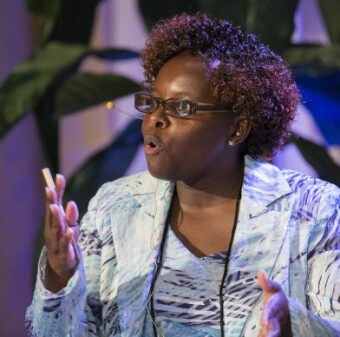The role of technology in meeting the needs of communities
By Priscilla Muzerengwa | Harare, Zimbabwe
This article was originally published by Harper Hill Global.
 Note of appreciation: Enrolling in the Monitoring and Evaluation Diploma offered by TechChange is a worthwhile step I will never regret. I have always wanted to do this diploma but had no means. A big thank you to Baltimore-Washington Conference of The United Methodist Church, Harper Hill Global
Note of appreciation: Enrolling in the Monitoring and Evaluation Diploma offered by TechChange is a worthwhile step I will never regret. I have always wanted to do this diploma but had no means. A big thank you to Baltimore-Washington Conference of The United Methodist Church, Harper Hill Global
The diploma is very qualitative and informative. My knowledge is being increased every day. I am acquiring new skills that will enable me to get into new ventures and collaborations with the church and or other organizations. This diploma features many experts in the field who give insights about technology for monitoring and evaluation. I am inspired and committed to
Evolution in technology has brought changes in many fields including the way we monitor and evaluate projects. The traditional way of monitoring and evaluation is being gradually replaced by digital processes. The manual methods of pen and paper evaluation are changing.
Monitoring and evaluation is the systematic collection and analysis of information from projects with the aim of improving performance and achieving desired goals. The digitization of these processes has been achieving acceptance because of its robustness, efficiency, speed, accuracy, transparency
“We are in the digital age, so we have lots of technology that help us to gather and transmit information. That has
According to Priscilla Chomba of Danish Church Aid, “Every humanitarian and developmental
Organizations are now being measured on their statistics. The capacity to track impact means that we must work with data, aggregate it and perform
To get this analysis, organizations are increasingly implementing technologies in monitoring and evaluation. These technologies collect large amounts of data and produce analysis that
“Build an information system into your project so that the necessary data can be collected in the course of regular project operations,” advised Michael
Zak Kaufman, Co-Founder
Baltimore-Washington Episcopal Area of The United Methodist Church is running several
- Congregational development
- Leadership development
- Global Health
- Poverty alleviation
Like any other projects monitoring and evaluation plays an important role in making sure that Baltimore Washington and Zimbabwe Episcopal Areas realize success in their goals. Monitoring and evaluation
A wide range of technologies that enable organizations to monitor and evaluate projects are being taught. Key to this diploma are lessons learned from giants in the industry of Monitoring and Evaluation. TechChange invites many experts in the field who give insights about technology for monitoring and evaluation. Gathering from all the activities and presentations technology has brought many positive effects into monitoring and evaluation and it is here to stay. Let us embrace technology into monitoring and evaluation and we will enjoy the benefits.
